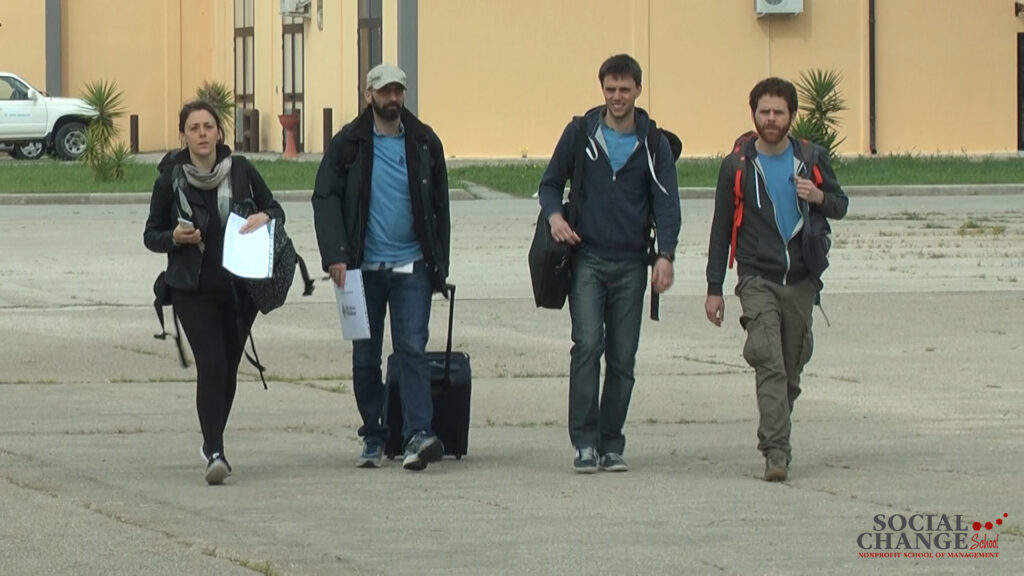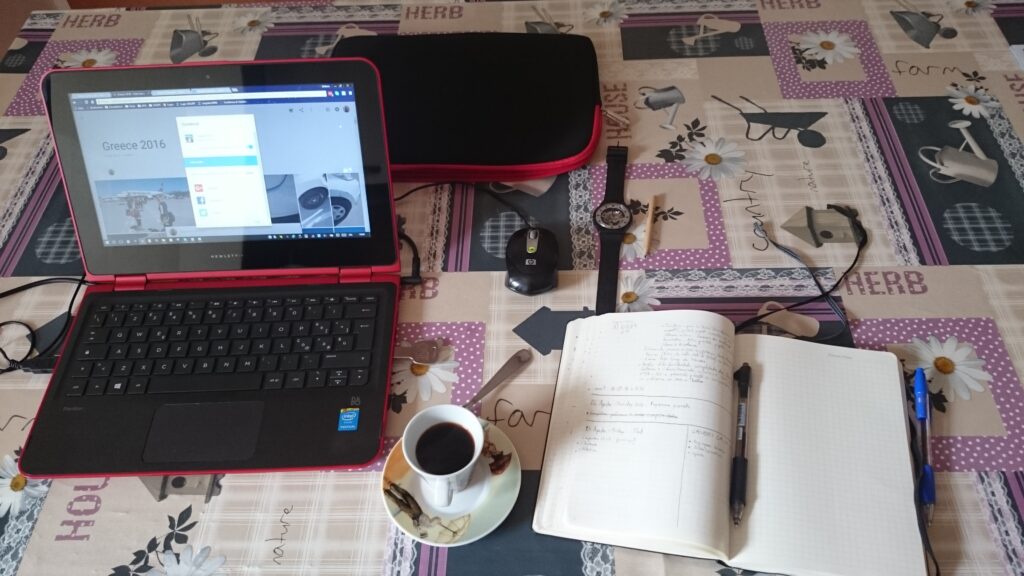Marco Crescenzi | 9 June 2016
Is working in the NGOs really a ‘Fantastic Job’ as we suggest in our institutional video ‘Working4SocialChange’? Despite all the external threats, and the internal management difficulties, for us it really is a great job, intense and rich of meaning.
Is there enough labour supply and which are the main professional profiles wanted today? Both the video “Working4SocialChange” and the research “Working in the NGOs” are previews that I have the pleasure to offer to the readers of this blog. The research “The Job Posting of the Italian NGOs, a jungle….of opportunities’, carried on by the Career Service of the Social Change School, was triggered by three questions:
- How rich is the offer and which are the ‘job posting’ behaviours of the NGOs?
- Which are the best ‘job posting’ platforms, in Italy and in the rest of the world?
- Which are the steps that have to be taken by those who want to work in the non-profit sector?
1.How rich is the offer and which are the ‘job posting’ behaviours of the NGOs? Where and how are the job offers published?
A first thing that has become clear is that the labour supply is very rich; we are talking about several millions of offers every year in the world. The result does not surprise us if we consider that the non-profit, in Western countries, employs on average 6% of the population. In Italy it is 3-4% with an estimated 1.3 million of people employed-most of them are women- reaching peaks of 13% in the Netherlands with an impact on the GDP of over 4%. This is the sector that in the last 25 years has produced and “held” more employment in Europe.
The vacancies, in the period between February-March and only on LinkedIn, were 125.000, but LinkedIn is used very little by the NGOs: in our evaluation, less than 5% of the job offers passes through the platform. Moreover, a significant part of the offer is not public and passes through informal channels such as word of mouth and ‘informal’ Head Hunting. In Italy, the only public offer opened by the Italian NGOs, in the period of reference (2 months) was of 181 vacancies, 90% of them were relevant to the international project-management profiles (international cooperation project management, humanitarian emergency management professionals) or to fundraising and communication.
The offers that are exclusively published on the organisations’ websites also have to be added to this (in the research we have only traced the main ones), those that are not public (word of mouth, head hunting) and of course, the positions that have been offered by the foreign NGOs including the one “in remote”. For what concerns the extent of the word of mouth, we do not have updated data, but in one of our previous researches, back in 2005, a 50% influence emerged, and for example we were always receiving requests for profiles that were ‘not published’.
Regarding to the geographical distribution of vacancies published by Italian NGOs, the majority is for positions in Italy (more than 60; 37,5%), followed by Africa (more than 50; 31,25%), Asia ,Middle East included (30, 19%), and South America (less than 10; 6%). What emerges in the NGOs’ ‘Job Posting’ behaviour is the absence of shared policies. The main NGOs publish primarily/mostly on their own website. This of course, makes life more difficult to the candidates- people looking for a job.
2.Which are the best ‘job posting’ platforms to look for a job in Italy and in the rest of the world?
The website Idealist.org is at the international level the most specific and dedicated and for this; it is considered by some sources (e.g. Forbes, 14th September 2012) the best website in the world for the Job Posting in the Third Sector: in the period of reference (2 months), it published 13.253 vacancies. The website Devex has 2.380 results. The website Relifweb is considered the best for the research of vacancies related to the international cooperation- humanitarian emergency sector, with a total of over 2.000 vacancies in the period of reference, and where many Italian NGOs publish. If LinkedIn was properly and widely used, it would obviously be the main platform of reference.
The best Italian platforms. From our data, the Italian website with the major coverage resulted to be Info-cooperazione, with 42% of coverage (77 vacancies of the 181 of the chosen period of time February-March), obviously, it makes particular reference to the international cooperation. InfoCooperazione is, first of all, an editorial operation of quality and success (luckily, the two aspects that in the non-profit sector are getting more and more on) and it is a must for those interested or working in the international cooperation, it is worth a look. Always active are the well known websites: Volint and Vita.it.
Looking at the quality of the platforms, it is expressed in a series of beneficial services of “manual” character (e.g. Job4Good from the qualitative point of view, looks to be the best of the Italian ones that we had analysed, a bit based on “Monster” model) whist are lacking in general in the non-profit sector, the automatisms of other ‘non-dedicated’ platforms that use matching algorithms.
3.Which are the steps that have to be taken by those who want to work in the non-profit sector?
First of all, by dedicating time to explore the offers of the national and international platforms that we have just reported, starting from Infocooperazione (Italy) and Idealis.org. There are so many offers also in the Southeast Asia and a wide range of offers in the UK, USA, Canada.
At the moment –for those looking for a job- the ‘pilgrimage’ in the different websites of the NGOs of interest (e.g. Save the Children, Oxfam, Action Aid, Greenpeace websites in different countries…) remains necessary. For those who want- are available to work at an international level on a specific profile, the research becomes more complicated as it is necessary, in addition to the pilgrimage on the NGOs websites, a pilgrimage on different platforms is also necessary, considering the increasing number of active platforms in the different continents, included Asia and Africa, where a strong request of professionals from the local NGOs and the international ones with headquarters in the continent is getting active. A look has to be given to the vacancies in ‘remote’ as well- employments in the own country but in remote.
The fateful ‘minimum required experience’: many accuse the non-profit sector and the NGOs to be a closed market and only open to who already had experience or/and a master. This is true, but not completely, the ‘non profit’ Managers and the HRM professionals mostly agree in saying that “for the Junior Profiles, also when in the job description a minimum of 3 years experience is pointed out, less competent people are usually preferred if they have a 360 degrees profile, looking more at the soft skills, rather than at the hard skills. There is not too much stiffness regarding the minimum prior experience” It has always been thus.
On the topic of the qualities (human and professional), for working in the non-profit, you can go back and give a look to previous posts that I have published (you have plenty of choice, you will all find something for you!). To follow our project “Working4” on the work in the NGOs and the debate between the HRM professionals of the sector on Blog4Change, you can start from the post of the colleague Zeno Filippi from Amnesty International.
With the occasion, a special thanks to the Career Service Team of the Social Change School, Dora Lisa Mercurio, Cinzia D’Intino, Federico Atzori, Elena Quaglia-Faccio, Sophia Crescenzi, Ida Meglio, and to the colleagues of the HRM sector that have participated to the project ‘Working4’.




